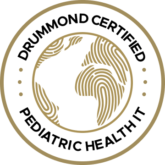Surveillance & Screening Tools
OP provides integrated surveillance and screening tools such as CRAFFT Screening, Autism M-CHAT-R (Scored), PHQ-2 & 9, Asthma Control Test (ACT), and Bright Futures Developmental Questionnaires to effectively assess your patients’ overall health, development, mental health and more. We also offer bi-directional integration with CHADIS®, the leading provider of online pediatric developmental surveillance tools such as Ages and Stages (ASQ™), M-CHAT™, and Vanderbilt ADHD assessments.
Seamless surveys: When surveys are completed online, the results are sent directly to the patient’s chart for review prior to a visit. This gives the provider information in advance on how to prioritize the visit.
Enhanced Revenue: Many of the screenings included in OP are covered services in addition to routine preventive care. Automatic charge capture ensures that you don't miss the opportunity to bill for these screenings, maximizing revenue that may be missed by a generic EHR.








